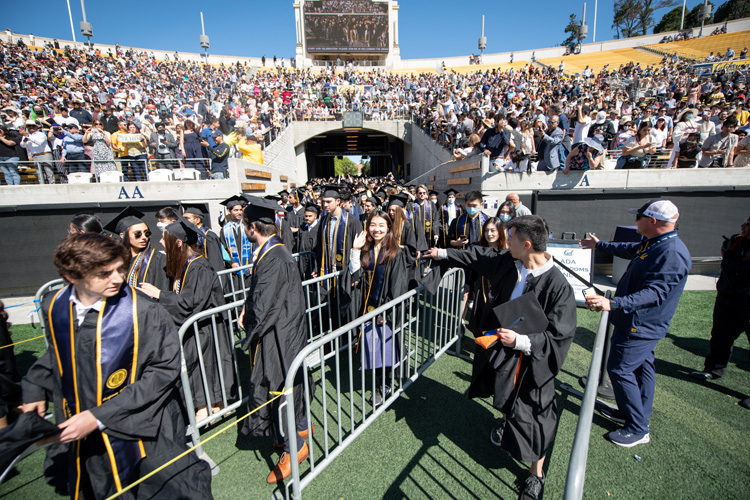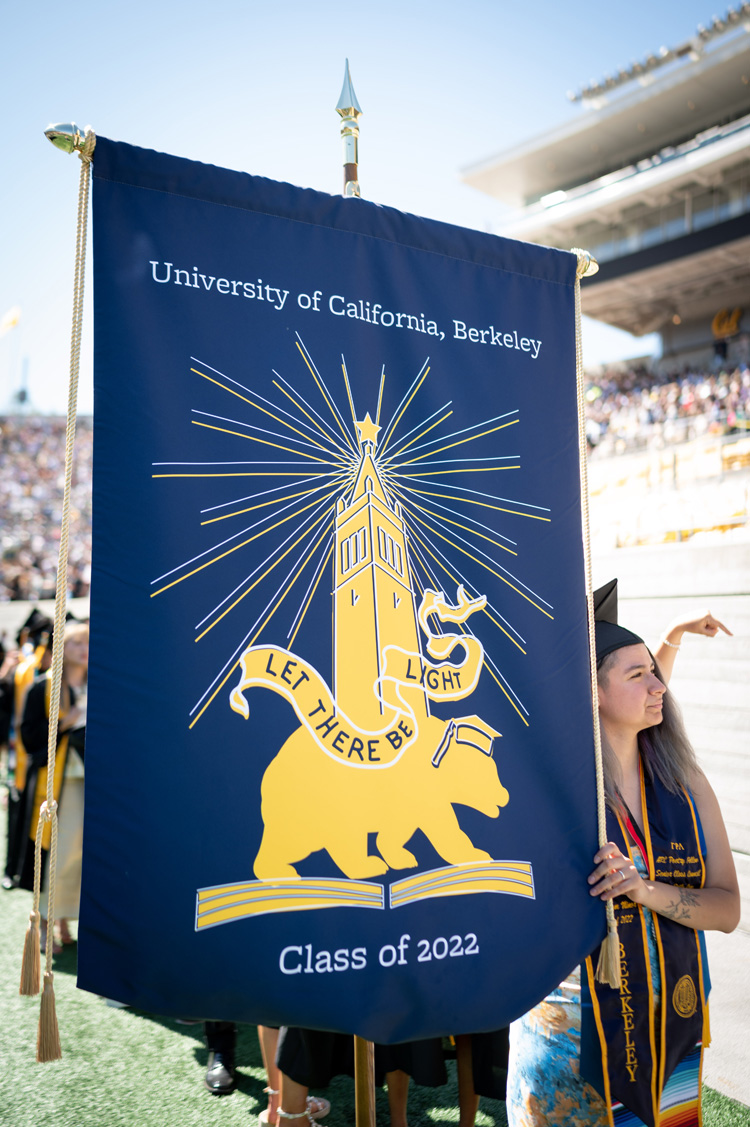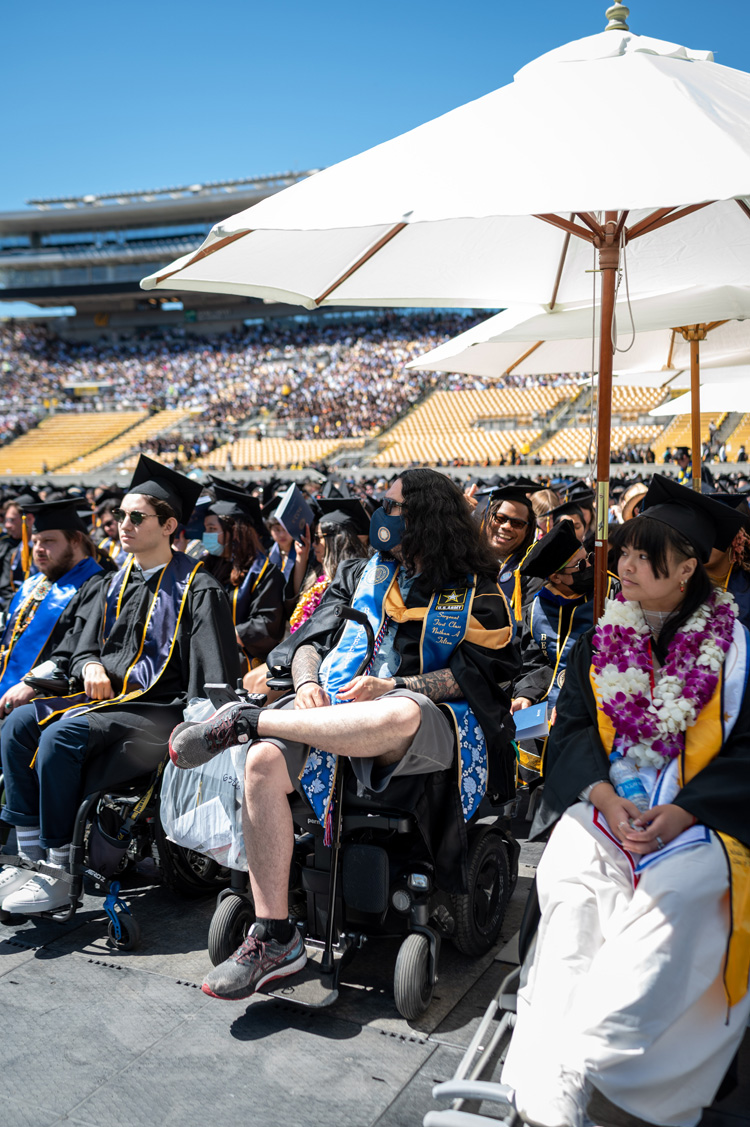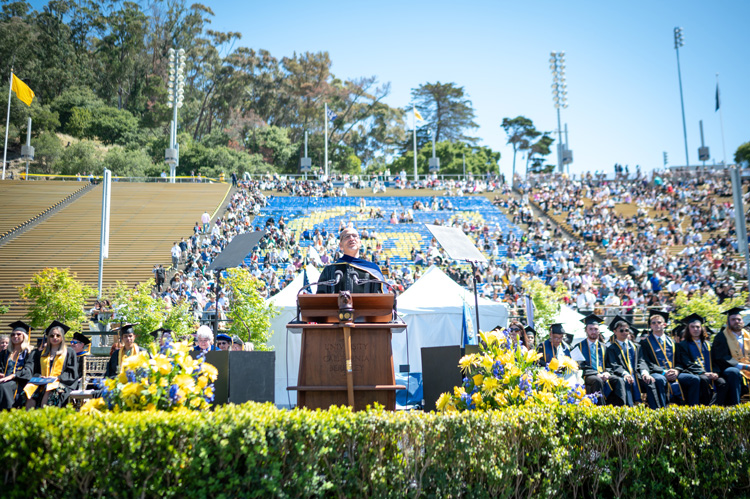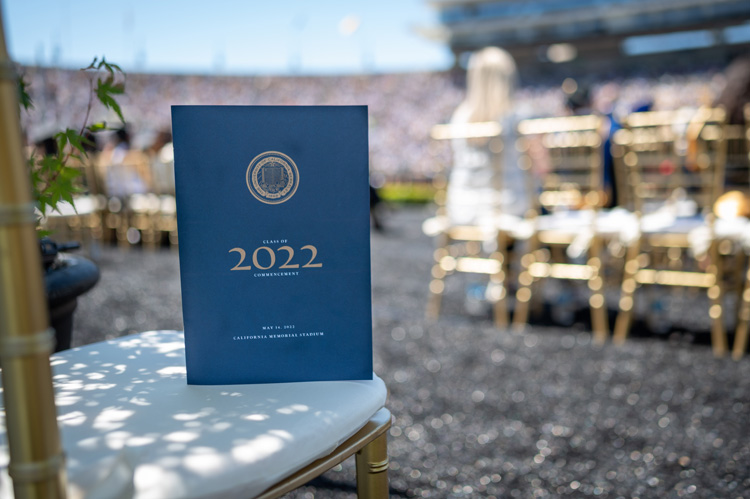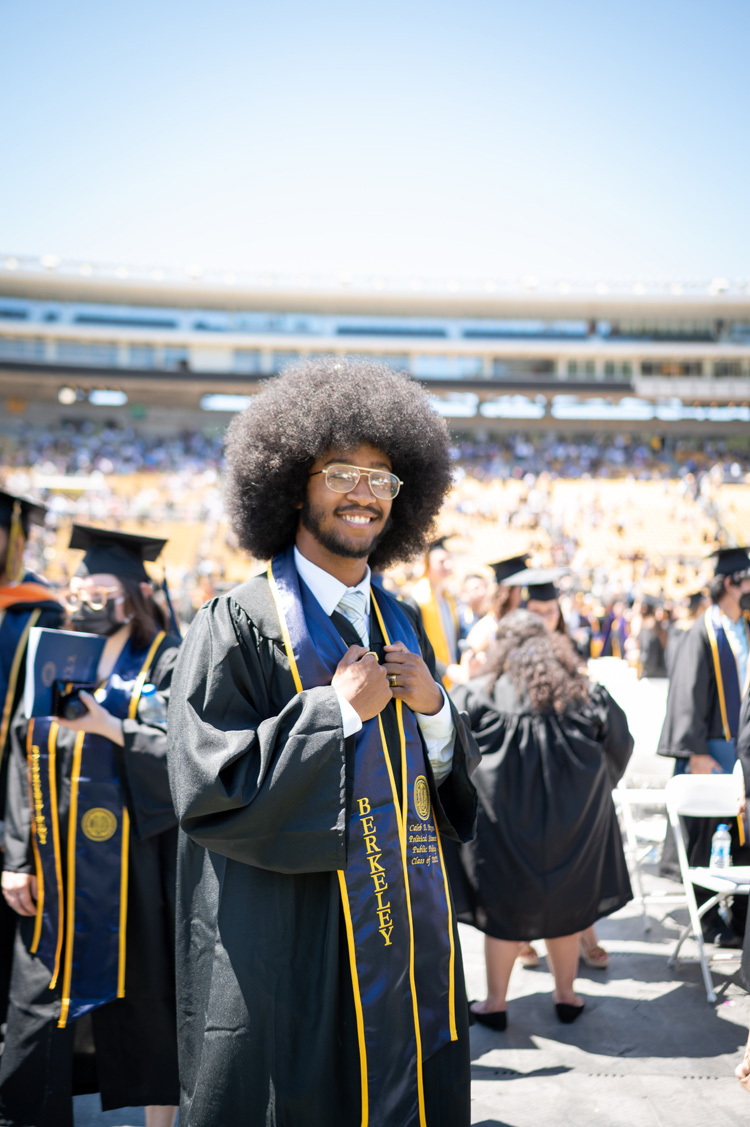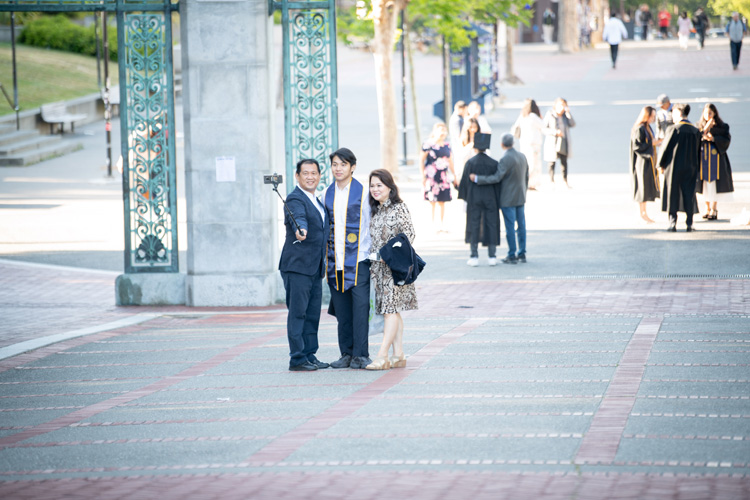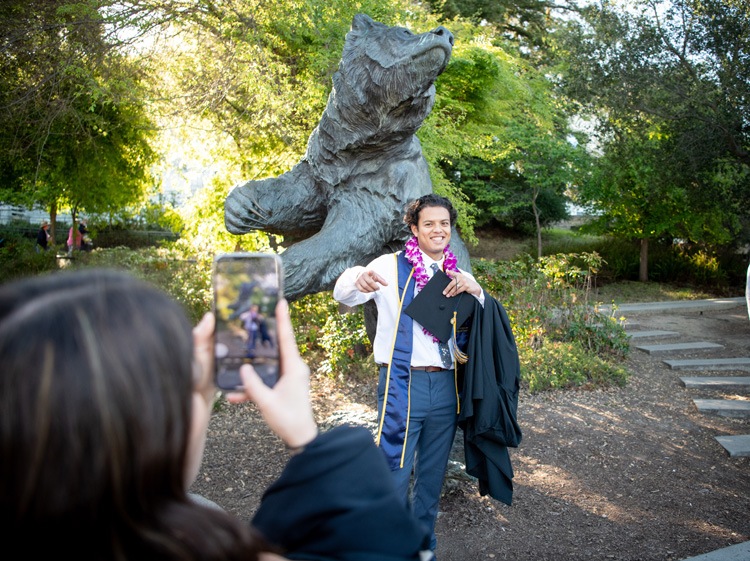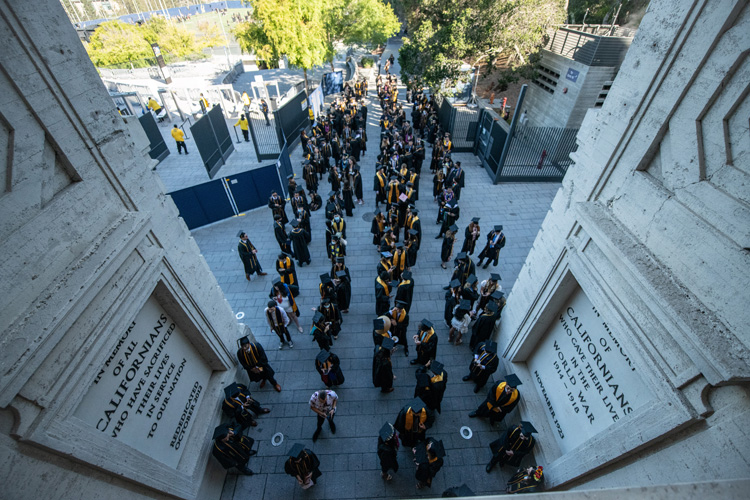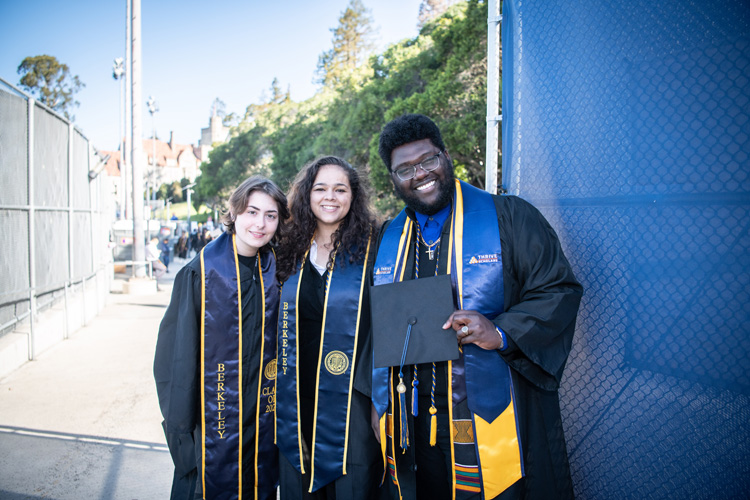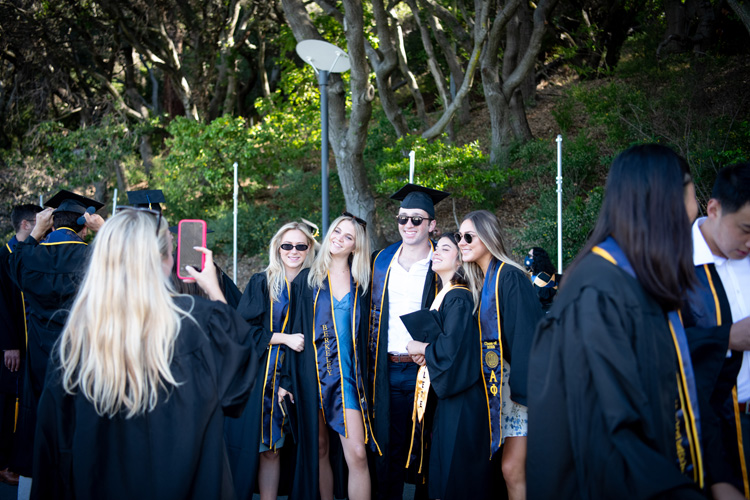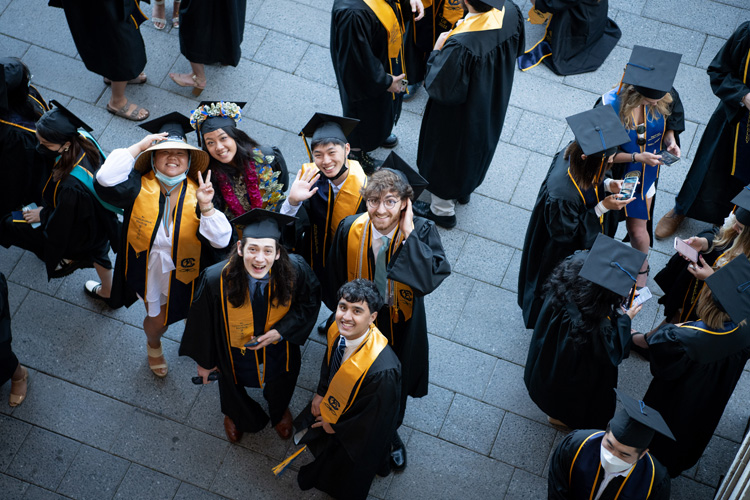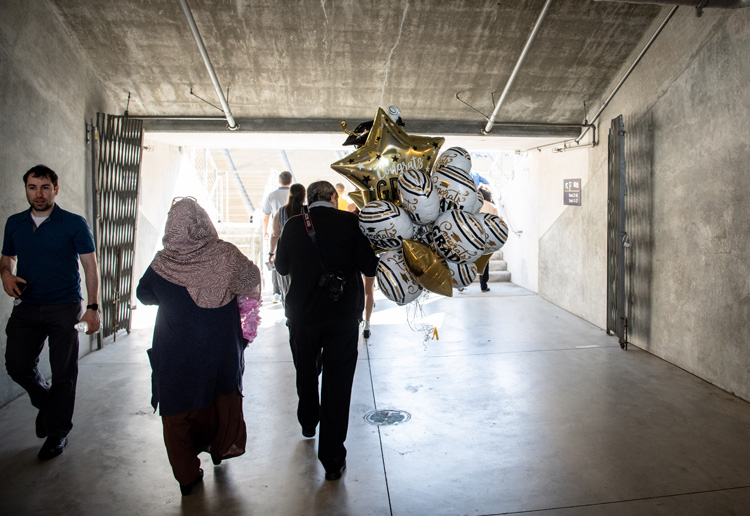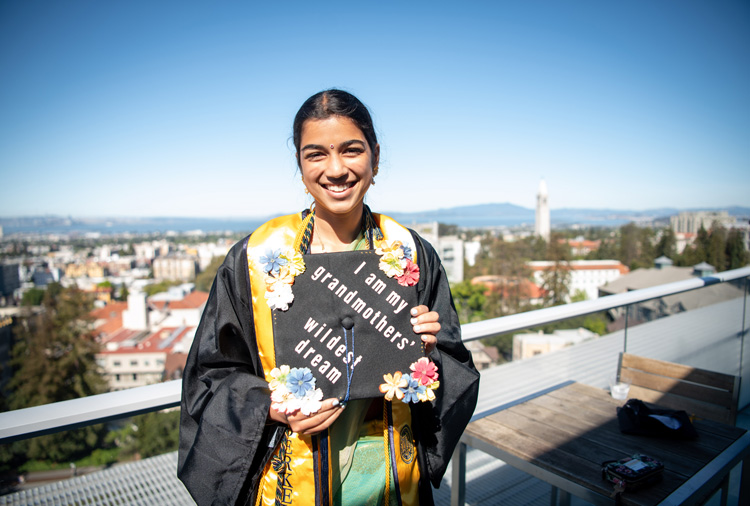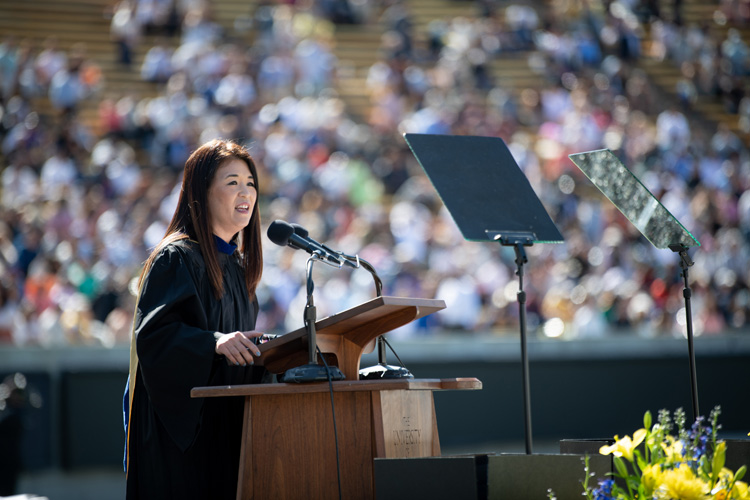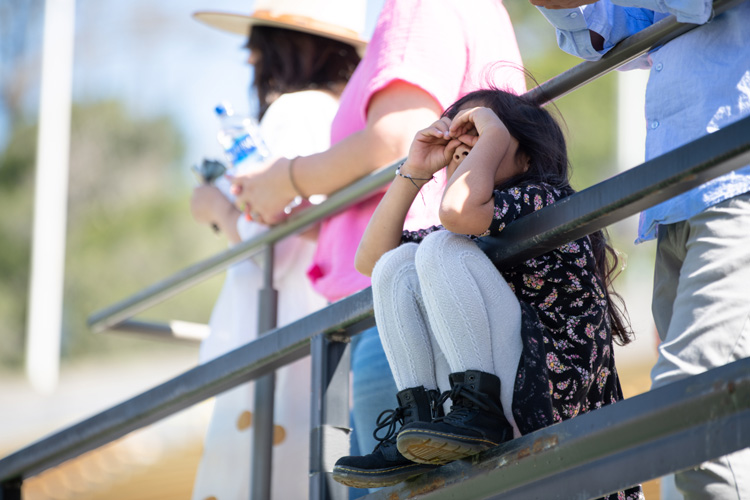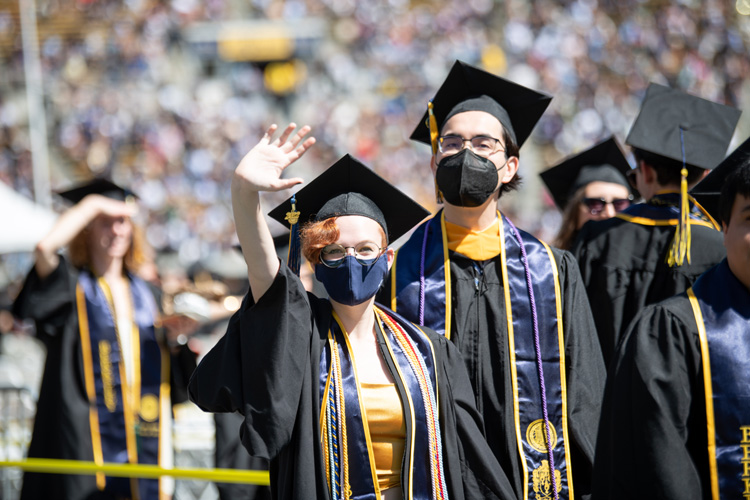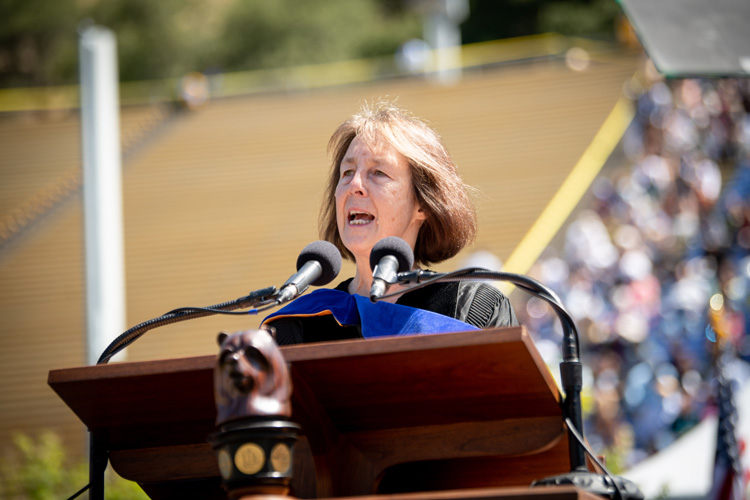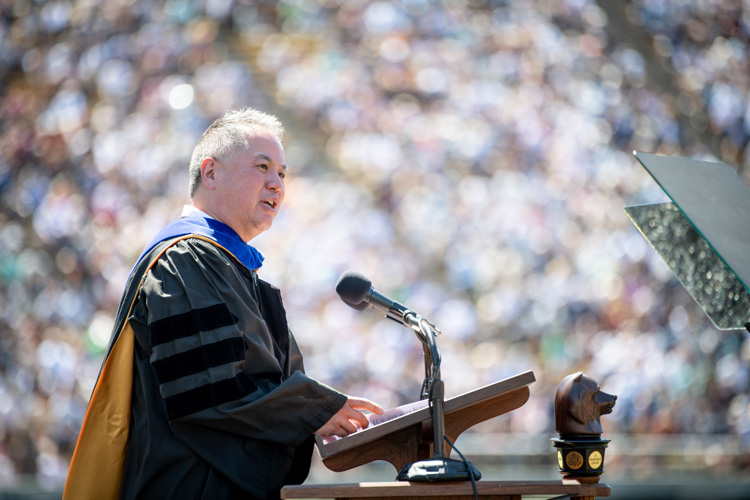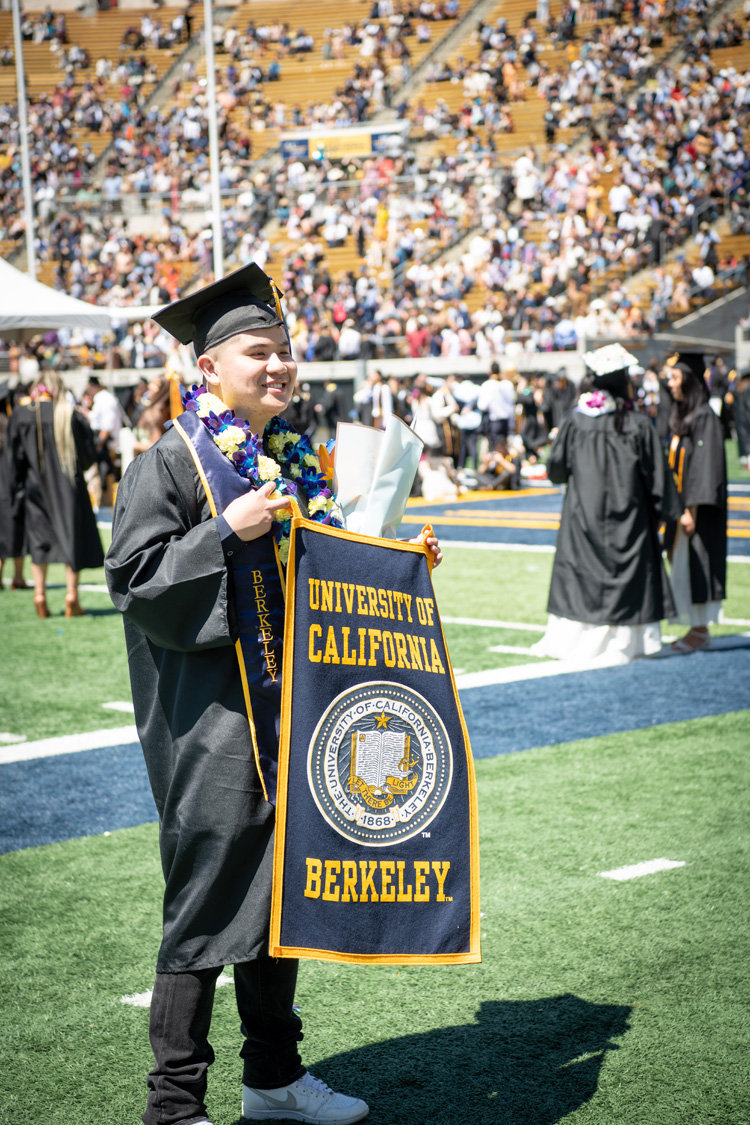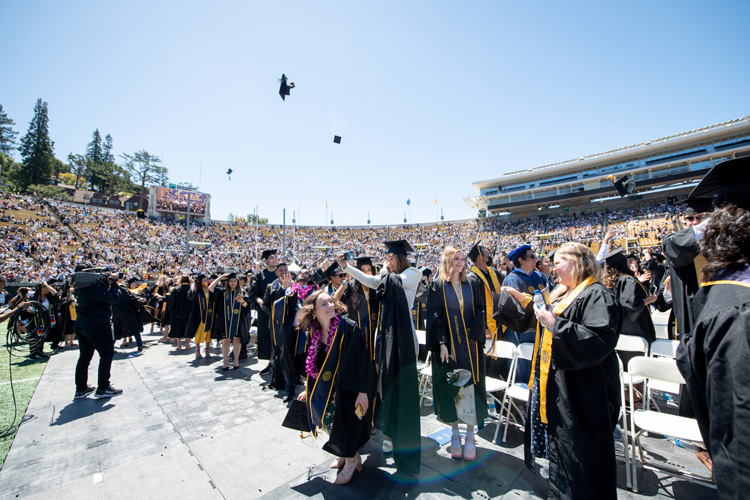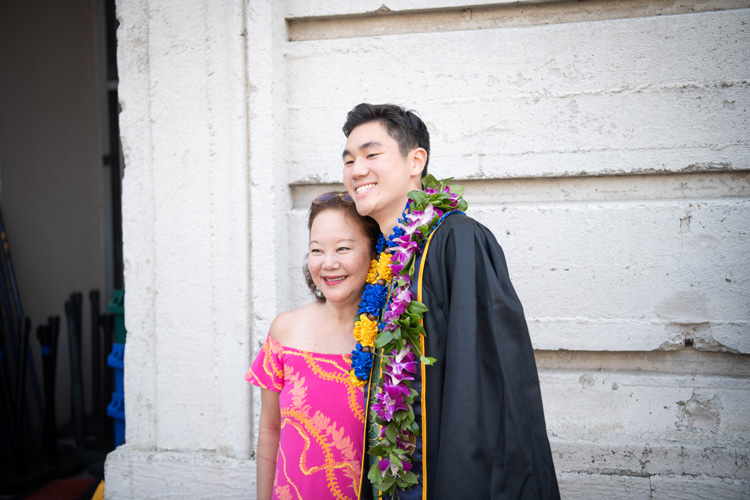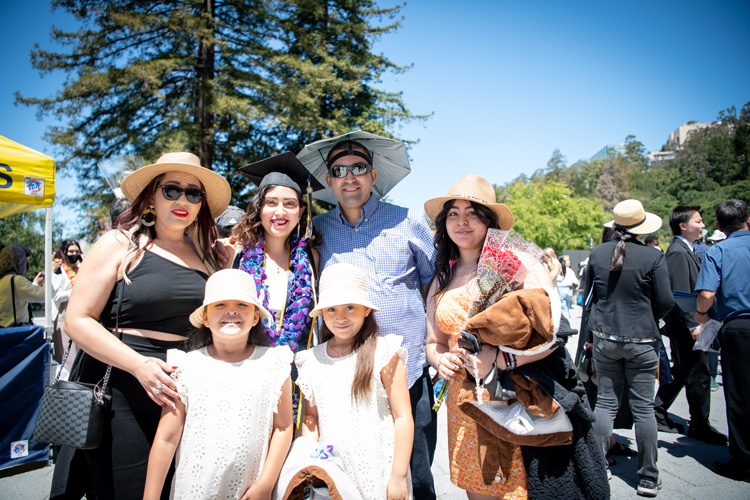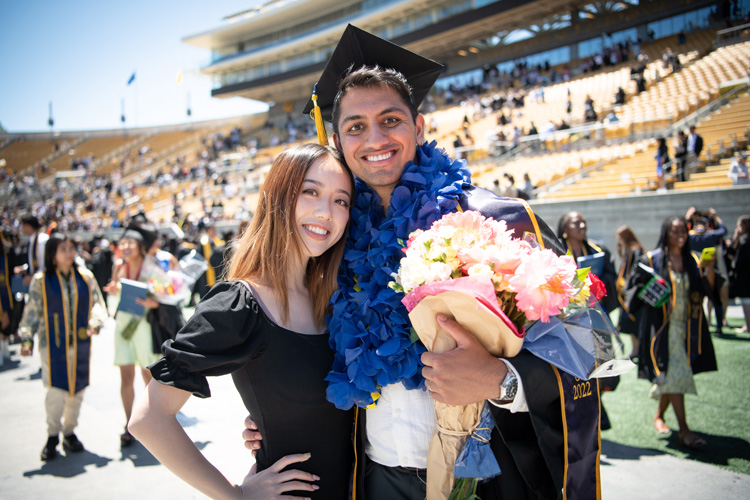In rollicking ceremony, UC Berkeley graduates cap a challenging college education
“I felt like Steph Curry going on the court for the playoffs,” one graduate said

May 14, 2022
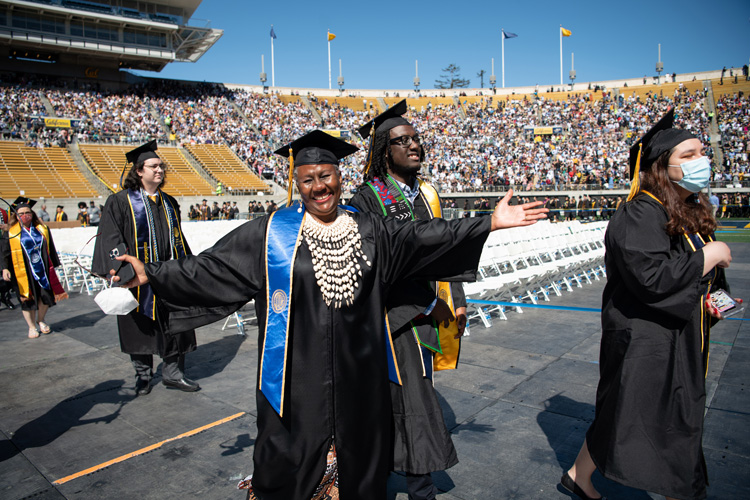
Saturday’s commencement — a jubilant celebration under clear blue skies — was the first commencement exercise held at California Memorial Stadium since 2019. (UC Berkeley photo by Keegan Houser)
In her four years at UC Berkeley, Lucky Simsuangco, 22, said she faced a lot of unexpected turmoil: Thick wildfire smoke canceled classes and darkened skies, regional power shut-offs interrupted classes, and a worldwide pandemic threatened serious illness and moved university life online.
But on Saturday, at Berkeley’s first commencement ceremony in historic California Memorial Stadium since 2019, Simsuangco sat with friends under clear blue skies, wearing her cap and gown and savoring the final moments of her college experience.
“I can’t really believe it,” Simsuangco said. “Our class had to go through so much.”
That disbelief permeated the giddy ceremony, which drew the largest attendance in recent history for Berkeley’s annual all-campus commencement. Graduates could hardly sit still, and speakers thrilled at the turnout and energy. Even parents, grandparents and other supporters in the stands performed a rippling, rollicking, spontaneous group wave with their arms outstretched as roughly 7,500 graduates filed in.
“I felt like Steph Curry going on the court for the playoffs,” said Lukas Aksena, 23, who is graduating with a degree in political science. “Everyone around me was just cheering so loud.”
Chancellor Carol Christ told graduates to recognize that their “resilience is a reflection of our campus as a whole.”
“Ever since the pandemic’s early days, we have seen a remarkable coming together of students, faculty, staff and alumni in support of each other and our university,” she said. “That resilience, those connections, that power of the campus community, are the reasons why our university is emerging from these difficult days stronger than ever — and I believe the same will hold true for you.”
This month, an estimated 6,398 students are projected to receive bachelor’s degrees, 2,474 to earn master’s degrees, 702 to get doctorates, and 646 to receive law degrees, according to the University Registrar’s office.
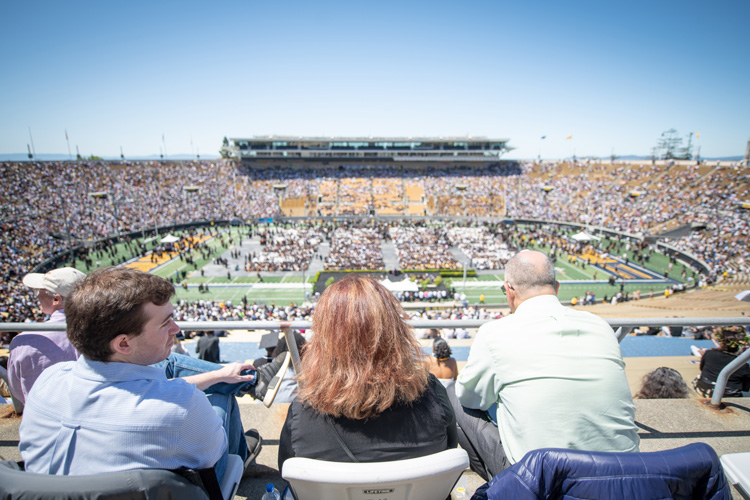
At one point during Saturday’s ceremony, friends and family filled the stadium with a rollicking wave celebration. (UC Berkeley photo by Keegan Houser)
Erick Chacon, 30, was among the graduates struggling to process the past two years at Berkeley. They left him lacking typical classroom experiences, in-person connections with professors and peers, and participation in a wide array of on-campus events. Yet, he’s still getting his degree in political economy and has a new job in venture capital.
The first in his family to attend college, Chacon had worked for seven years before attending community college in Marin County and then transferring to Berkeley.
Adding to his amazement at graduating this semester, he said he was “thrown out of, like, 13 different schools growing up, before I ended up here,” he said, sitting on the football field before the ceremony.
“I’ve been so focused on getting here; I process things after they happen. It’ll probably hit me next week.”
Keynote speaker Randy Schekman, a Berkeley professor and 2013 winner of the Nobel Prize in Physiology or Medicine, reminded graduates of the power of their public education.
“The University of California is … the most important institution of higher education in the country,” he said of the 10-campus state system. “The private universities that cater to privilege and entitlement can’t hold a candle to you and what you have accomplished to reach this milestone.”
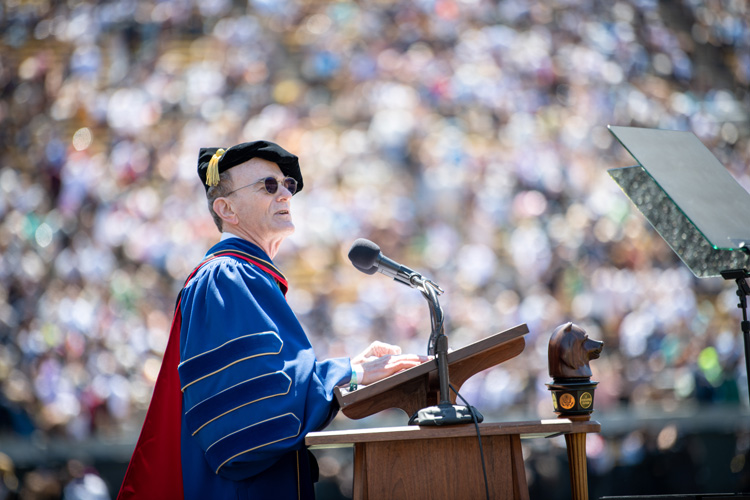
“We win if your mind is stretched, but not filled,” keynote speaker Randy Schekman told graduates. (UC Berkeley photo by Keegan Houser)
Schekman added that he hoped the graduates would use their Berkeley education throughout the rest of their lives to “question the truth of common wisdom and ask for the evidence.”
“We win if your mind is stretched, but not filled,” he said, reiterating that graduates must continue to be students, to keep learning.
Also recognized during the ceremony were two state legislators — Sen. Nancy Skinner (D-Berkeley) and Assembly Member Phil Ting (D-San Francisco) — for their work to overturn a campus enrollment freeze. William Rogers, CEO of Goodwill San Francisco Bay, was also honored with the 2022 Peter E. Haas Public Service Award.
Asked to pick his most memorable moment on campus, Aksena, the political science graduate, pointed to his classmates.
“They’ve started nonprofits, startups, researched and studied amazing things, like data science or so many other majors,” he said. “I’m being vague because there’s so many different things to include.”
“If you come here and you don’t want to do more than you did before,” he added, “then you didn’t really experience Berkeley.”
